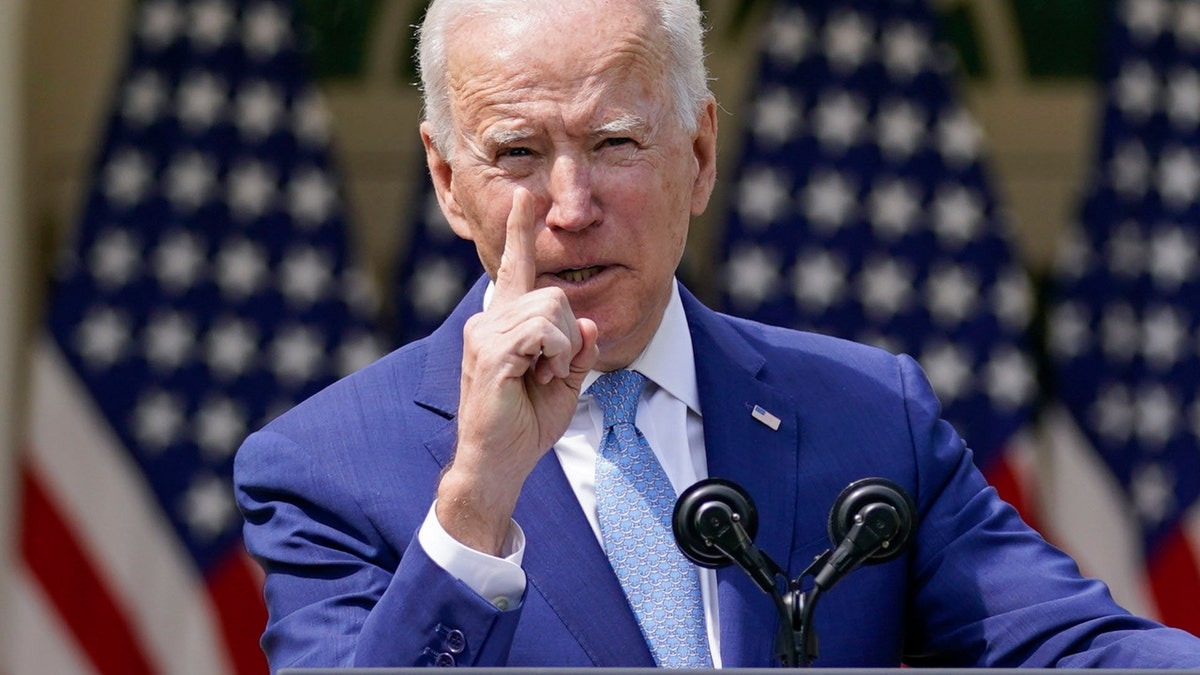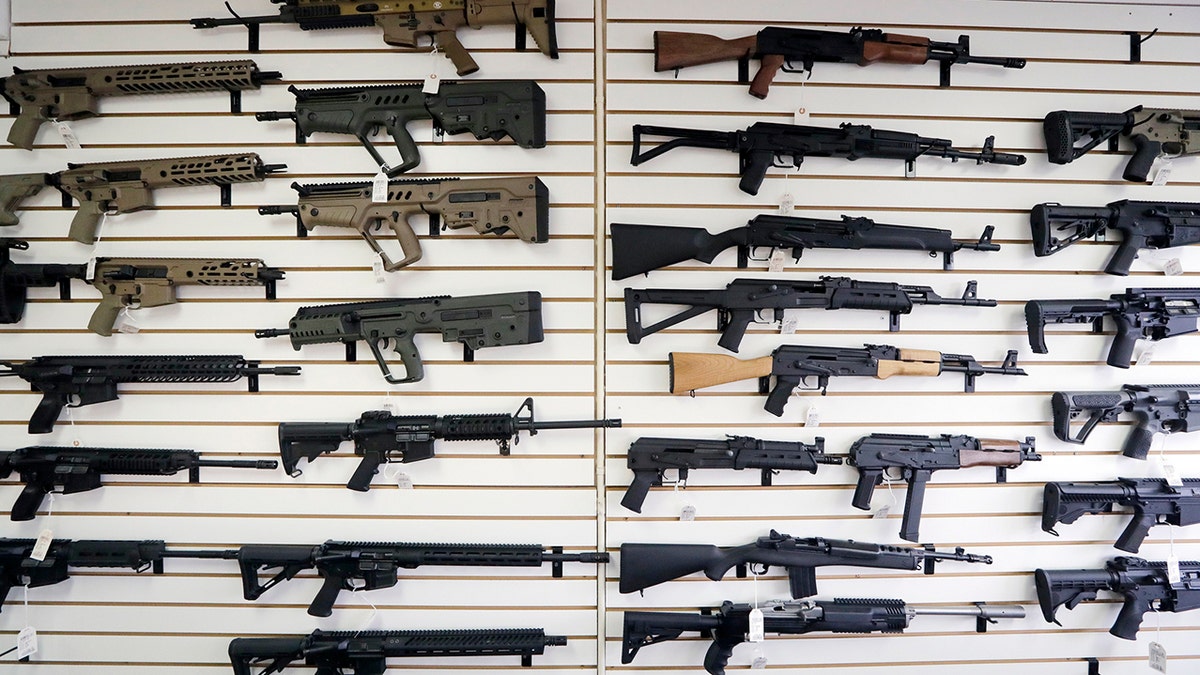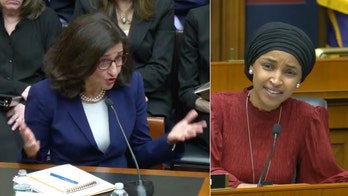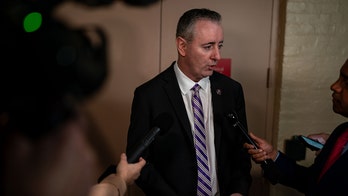Lawrence Jones, 'Outnumbered' hosts on Biden's gun control push
Fox News ‘Outnumbered’ panel weighs in on President Biden saying that gun stores should not have immunity.
President Biden on Thursday falsely claimed that gun manufacturers "can't be sued."
The president made the claim while announcing a set of executive actions and legislative proposals on gun control at the White House, describing gun violence in the country as "a public health crisis" and saying the administration's actions do not contravene Second Amendment rights.
"The only industry in America, a billion-dollar industry, that can’t be sued – that's exempt from being sued – are gun manufacturers," he said during a press briefing announcing the new legislation.
While it's true that gun manufacturers have some liability protection, it is false that they are "exempt from being sued."

President Joe Biden speaks about gun violence prevention in the Rose Garden at the White House, Thursday, April 8, 2021, in Washington. (AP Photo/Andrew Harnik)
"It's just so disingenuous in the name of pandering and grandstanding that Joe Biden got up and said all those things that he did, most of which were not true," attorney T. Edwin Walker, who is part of the American Council of Second Amendment Lawyers, told Fox News after watching the press conference.
The 2005 Protection of Lawful Commerce in Arms Act (PLCAA), otherwise known as the Child Safety Lock Act, protects gun manufacturers from being held liable in cases when people commit crimes using their products, but firearms makers can still be sued for a number of other reasons such as product defects.
BIDEN TO TARGET 'GHOST GUNS,' STABILIZING BRACES IN NEW GUN CONTROL ACTIONS
"Gun manufacturers are protected from being sued with basically nuisance lawsuits for individuals who misuse their product," Walker, partner at Walker & Taylor, PLLC, said. "Prior to [2005] ... there was a well-known, concerted, strategic effort to cripple the gun ... industry by doing this death-by-a-thousand cuts sort of thing, where every lawsuit, whether its meritorious or not, had to be defended."
Gun manufacturers faced a slew of lawsuits in the 1990s and 2000s related to gun crimes.
Former New York City Mayor Rudy Giuliani for example, filed a lawsuit against 12 gun manufacturers in 2000 claiming that selling practices created a public nuisance by ultimately putting guns in the hands of criminals, which was dismissed by an appeals court in 2008. Thirty other cities had filed similar actions at the time.
Walker added that victims of gun violence or gun-related crimes have the ability to sue a person who commits a crime or sue the company that sold the firearm if the criminal "got the gun through an act of negligent entrustment."
BIDEN ON THE SECOND AMENDMENT: 'NO AMENDMENT IS ABSOLUTE'
The manufacturer, however, cannot be sued "once their product enters the stream of commerce for an intentional criminal act perpetrated by somebody with the gun."
"That's the only protection they had," he said of gun manufacturers.
Gunmakers are otherwise just like any other company that can be sued for product design defects, marketing defects or manufacturing defects that lead to an injury, Walker explained. He compared the act of suing a gunmaker for a gun crime to suing an auto manufacturer for a drunk-driving incident.

Semi-automatic rifles fill a wall at a gun shop in Lynnwood, Wash. (AP Photo/Elaine Thompson, File)
"They can't be held for the intentional or criminal acts of others," he said. "...It's very straightforward."
Biden said Thursday that his administration should "eliminate gun manufacturers from the immunity they receive from the Congress," referring to the PLCAA.
"This is the only outfit that is exempt from being sued," he continued. "If I get one thing on my list ... give me that one because I tell you what there would be a come-to-the-Lord moment these folks would have real quickly."
The president also claimed that people can "go to a gun show" and "buy whatever you want – no background check."
CLICK HERE TO GET THE FOX NEWS APP
Private gun sellers, or people who sell guns but are not licensed dealers, are not legally required to conduct background checks on customers, but all licensed gun dealers are required to conduct background checks, whether selling firearms in stores or at gun shows.
A federal firearms licensee (FFL) must contact the National Instant Criminal Background Check System (NICS) in order to sell a firearm to a customer. The prospective buyer fills out an ATF form, which the FFL relays to the NICS, which then performs a background check on the customer, according to the FBI.
Fox News' Tyler Olson contributed to this report.






